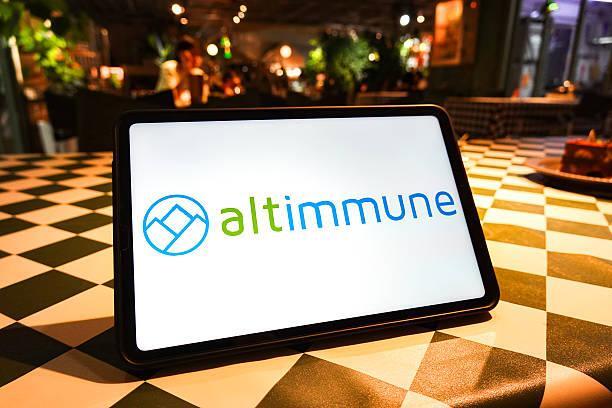
Altimmune draws retail buzz ahead of key 48-week MASH data
The biotechnology sector has been abuzz with excitement as Altimmune, a clinical-stage biopharmaceutical company, gains heavy retail attention from investors. The company is on the cusp of releasing its 48-week Phase 2b data for pemvidutide in the MASH (Multicenter Assessment of Safety and efficacy of pemvidutide in Histological resolution of NASH) study, and traders are eagerly anticipating the results. As the countdown begins, investors are pointing to AI-assisted biopsy findings and clearer dose-response evidence as key factors that could make or break the company’s fortunes.
Pemvidutide, Altimmune’s lead candidate, is a glucagon-like peptide-1 (GLP-1) receptor agonist that has shown promise in treating non-alcoholic steatohepatitis (NASH), a fatty liver disease that affects millions of people worldwide. The MASH study is a pivotal trial that aims to assess the safety and efficacy of pemvidutide in resolving NASH in patients with the disease. The 48-week data will provide crucial insights into the drug’s ability to improve liver histology, a key endpoint in NASH clinical trials.
Traders are bullish about the prospects of pemvidutide, citing the recent Lancet publication and the AASLD (American Association for the Study of Liver Diseases) late-breaker presentation, which added momentum to the stock. The Lancet publication highlighted the potential of GLP-1 receptor agonists in treating NASH, while the AASLD presentation showcased the promising results of pemvidutide in a Phase 2a trial. These developments have fueled optimism among investors, who are now eagerly awaiting the 48-week MASH data to confirm the drug’s efficacy and safety.
However, not all analysts are convinced about the potential of pemvidutide. Some have raised concerns about the drug’s differentiation from existing treatments and the funding risk associated with its development. The NASH landscape is highly competitive, with several big pharma companies, including Novo Nordisk and Eli Lilly, already marketing GLP-1 receptor agonists for the treatment of type 2 diabetes. The question on everyone’s mind is whether pemvidutide can carve out a niche for itself in this crowded market.
Despite these concerns, Altimmune remains committed to advancing its liver programs, with several readouts expected in 2026. The company is also exploring the potential of pemvidutide in other indications, including obesity and type 2 diabetes. With a strong pipeline and a seasoned management team, Altimmune is well-positioned to capitalize on the growing demand for innovative treatments in the liver disease space.
As the 48-week MASH data approaches, investors will be closely watching for any signs of pemvidutide’s efficacy and safety. A positive outcome could send the stock soaring, while a disappointing result could lead to a significant decline. Either way, the upcoming data release is expected to be a major catalyst for Altimmune’s stock, and traders are advised to exercise caution and do their own research before making any investment decisions.
In conclusion, Altimmune is drawing significant retail buzz ahead of its 48-week MASH data release, with traders pointing to AI-assisted biopsy findings and clearer dose-response evidence as key factors that could drive the stock’s performance. While analysts remain split over the drug’s differentiation and funding risk, the company’s strong pipeline and commitment to advancing its liver programs position it for long-term success. As the biotechnology sector continues to evolve, one thing is certain – the upcoming 48-week MASH data will be a pivotal moment for Altimmune, and investors will be watching with bated breath.





